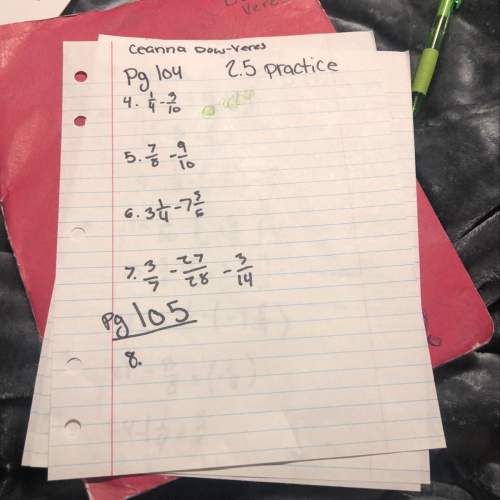Which of the following is true?
xy–y–x+1 = (1+x) (1–y)
xy–y–x+1 = (x–1) (y–1)
xy–y–x+1...

Mathematics, 25.01.2021 14:00 deb64
Which of the following is true?
xy–y–x+1 = (1+x) (1–y)
xy–y–x+1 = (x–1) (y–1)
xy–y–x+1 = (1–x) (y–1)
xy–y–x+1 = (x–1) (1–y)
plz fast

Answers: 1


Another question on Mathematics

Mathematics, 21.06.2019 14:00
If x = 12 and y = 3, what is the value of x - y 2? 81 6 3 18
Answers: 1

Mathematics, 21.06.2019 19:20
1- is the product of two rational numbers irrational or rational? first, make a hypothesis by multiplying two rational numbers. then, use variables such as x=a/b and y=c/d and the closure property of integers to prove your hypothesis. 2- what do you think the product of a nonzero rational number and an irrational number is? is it rational or irrational? make use of variables, the closure property of integers, and possibly a proof by contradiction to prove your hypothesis. 3- why do we have to specify that the rational number must be nonzero when we determine what the product of a nonzero rational number and an irrational number is? if the rational number were 0, would it give us the same result we found in part b?
Answers: 3

Mathematics, 21.06.2019 20:30
Steve had 48 chocolates but he decided to give 8 chocolats to each of his f coworkers. how many chocolates does steve have left
Answers: 1

Mathematics, 21.06.2019 22:10
To prove that angle def = angle dgf by sas, what additional information is needed? def congruent to dgf dfe congruent to dfg de congruent to dg dg congruent to gf
Answers: 1
You know the right answer?
Questions

Mathematics, 07.04.2020 17:16



History, 07.04.2020 17:19


Social Studies, 07.04.2020 17:20

English, 07.04.2020 17:20


Arts, 07.04.2020 17:21














